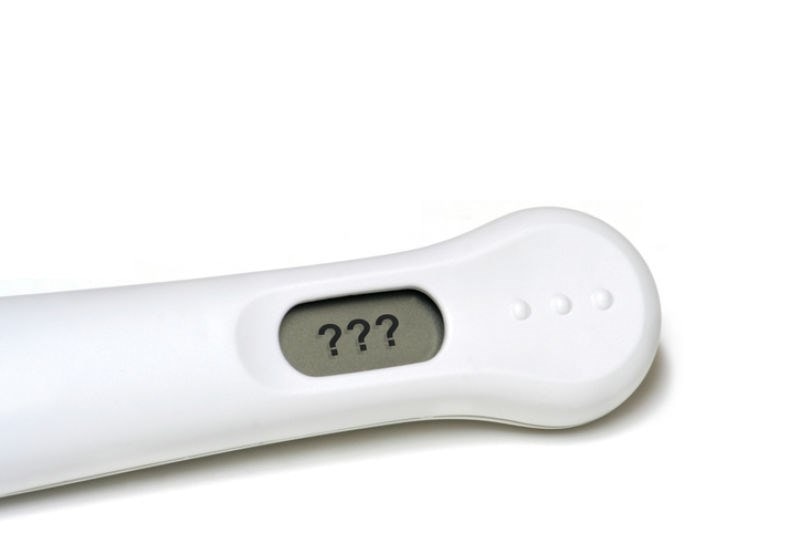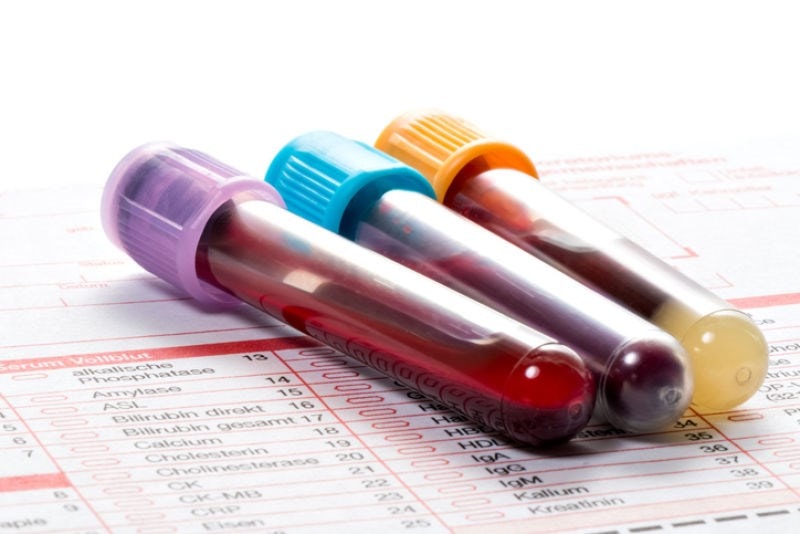Getting Pregnant: Could Probiotics Help?
According to NHS statistics as many as one in seven couples in the UK are struggling to conceive. The numbers of couples undergoing fertility treatments, such as IVF, each year are growing, and success rates for the treatment are relatively low.
The HFEA (Human Fertilisation and Embryology Association) reports that around 27% of total IVF cycles result in a live birth – although figures vary greatly between different maternal age groups. Scientists are looking for answers as to what is impacting fertility and conception rates. Many avenues are being explored, including a number of clinical trials which have looked at the potential role of probiotics for fertility and conception..
Within this article:
- Holistic approach to fertility
- How could probiotics help with fertility?
- Infections, and their impact on fertility
- What is a healthy vaginal microbiome?
- Presence of pathogens in the placenta and amniotic fluid
- Inflammation and infertility
- Research on probiotics for fertility
- Summary

Holistic approach to fertility
The reason behind having not yet conceived can be a mystery, and many cases are labelled as ‘unexplained infertility’ by the medical profession. Perhaps the best advice I can give to any woman wishing to get pregnant is to address the health of her whole body.
When a female client comes to a Nutritional Therapist looking to improve their fertility, and asks how she can get pregnant, I always aim to support all aspects of her health, including: emotional health, endocrine health, immunity, detoxification pathways and of course, her intestinal and vaginal microflora. This protocol would include, diet and lifestyle recommendations, along with the use of targeted pre natal supplements. The potential role that probiotics could play in an overall fertility picture should also not be overlooked.
How could probiotics help with fertility?
Gut and vaginal microflora are perhaps not the first things that we think about when considering infertility, but maybe they should be? The beneficial bacteria living in our GI tracts are responsible for many essential metabolic processes, such as: proper digestion of food, bio-availability of many types of vitamins, immune system regulation and providing a first line of defence against pathogens.
At a very basic level, these key functions all impact on a person’s fertility, for example, the better our digestion of food, and absorption of vitamins and minerals is, the better equipped the body is to fuel all of the chemical reactions that are essential to balancing our hormones. Hormone regulation is key when we are trying to conceive!
However, looking beyond these more general applications of probiotics, specific research into probiotics for fertility has looked at three main areas:
- Infections and infertility
- Presence of pathogens (bad bacteria!) in the placenta and amniotic fluid
- Inflammation and infertility
Let’s take a look at each of these in a bit more depth.
Infections, and their impact on fertility
Infections within any organ system in the body can be hugely detrimental to fertility and pregnancy, however infections of the vagina and reproductive system present the most obvious threat.
Bacterial vaginosis (BV) has been shown in studies to have many negative implications to an overall fertility picture. BV is known to increase the risk of pre-term births and other complications of pregnancy, as well as to decrease the success rate of IVF implantation. Recent statistics indicate that BV is present in 30-70% of women who have gone through unsuccessful IVF cycles.
Researchers at Ghent University in Belgium reported that the presence of BV is ‘a strong and negative factor in overall fecundity’ (‘fecundity’ means ‘fertility’). This view has been backed up by trials1 that show that a large percentage of women going through IVF test positive for BV. We do not know if there are other factors involved in their infertility, or if it is solely the presence of the pathogenic bacteria that causes BV that is preventing them from conceiving naturally. However, the high incidence of BV in infertile women is certainly a 'pattern' worth considering.
Along with BV there are countless other infections of the reproductive tract that may potentially affect fertility and pregnancy. These infections are related either to the presence of pathogenic microbes in the vaginal tract, or the absence of protective 'probiotic' vaginal bacteria (which are made up of 95% Lactobacillus species).
When we consider that so many women who have IVF treatment also test positive for BV, I feel strongly that any woman that is trying to conceive and is prone to vaginal infections should take an ‘intimate’ flora product. In particular, it's important to opt for a supplement that provides specific strains of probiotic bacteria known to help with vaginal health. Infections can often go undetected, so a woman may not know that she has one, but her fertility may be 'silently' being affected. Improving the vaginal microbiome with a probiotic supplement is an easy thing to do, and there are no known side effects.

A healthy vaginal microbiome
It is well known that the Lactobacillus genus is the predominant genus of bacteria found in a healthy vagina, therefore most related research uses strains from the Lactobacillus species.
Recent research suggests that the composition of the vaginal microbiota prior to IVF treatment may predict pregnancy outcome6. Analysis of women's vaginal microbiome prior to IVF treatment might, therefore, offer an opportunity to improve the success rate of IVF.
The 2019 study by R Koedooder, et al found that women with a low percentage of Lactobacillus in their vaginal sample were less likely to have a successful embryo implantation. Additionally, the study reported that the degree of dominance of Lactobacillus crispatus was an important factor in predicting pregnancy.
Presence of pathogens in the placenta and amniotic fluid
For a long time our understanding has been that the womb is a sterile environment for the baby as it develops, and that as the baby is born it passes through the birth canal and picks up its microbiota from the mother. However, recent research findings2 have indicated otherwise - the placenta has been found to have bacteria present, and these are thought to transfer to the baby while still inside the womb.
A study3 by Aagaard, K. et al. (2014) took this finding further. It looked at tissue samples from 320 placentas and identified that there were microbes present. Interestingly, they found a specific bacteria called Fusobacterium nucleatum, which is normally found in the mouth. Aagaard suggests the possible explanation for how a bacteria that usually lives in the mouth, would be found in the womb and placenta could be taken from an earlier animal study. This study identified that this specific oral microbe was able to adjust the structure of the host's (our!) blood vessels’ to allow for its movement through the blood system. This may also be why cases of gingivitis are considered risk factors for pregnancy complications.
The implications for the existence of bacteria in the amniotic fluid is not yet fully understood, but a pathogenic infection so close to a developing foetus would clearly not be a good thing!
In order to understand if the bacterial populations found in the amniotic fluid can be manipulated with oral supplementation of probiotics a further study4 by Rautava et al (2012) looked at 43 mother-infant pairs (of which 29 pairs completed the study). The participants were randomised to receive either (1) B. lactis, (2) B. lactis & L. rhamnosus GG combo, or (3) placebo for 14 days before their scheduled C-section. After the birth, bacteria taken from the amniotic fluid and placenta were tested against the child’s gut. They found that the babies all showed gene expressions in their gut that could only have resulted from exposure to the specific bacteria from the placenta and amniotic fluid that they were testing.
This indicates two really key things: firstly that the microbial contact the baby has in the womb may impact foetal and placental immunity, and secondly that certain strains of probiotic bacteria when taken orally are able to reach the womb! Taking an oral probiotic supplement may therefore be able to ensure that the bacteria present in the womb are 'friendly' and health-promoting, rather than pathogenic and able to cause infection.
Inflammation and infertility
Infertility often correlates with increased systemic inflammation. This can be seen in patients with endometriosis and other inflammatory conditions. Wide-spread inflammation is a marker of an immune system that is out of balance. When the immune system is on ‘red alert’ like this conception can be more difficult as we have evolved not to conceive when we are under considerable physical or psychological stress.
Find out more about the link between gut dysbiosis, leaky gut and systemic inflammation.
A 2014 study published in the journal ‘Seminars in Reproductive Medicine’ showed that inflammation can also affect the delicate balance of our two main sex hormones, oestrogen and progesterone. Inflammation, it appears, can lead to oestrogen dominance, and a relative lack of progesterone. Progesterone is needed to prepare the lining of the uterus for pregnancy, it is also needed to maintain a pregnancy, particularly in the first 8-10 weeks (before the placenta takes over the progesterone production). Low progesterone is therefore very common in women that are experiencing fertility problems. It is also often implicated in early miscarriage.
There have been many clinical trials that show that probiotic supplementation can be very effective in reducing systemic inflammation. These trials have looked at various different inflammatory markers in the blood, and how they can be manipulated (either raised or lowered) by supplementing with probiotics.

Finnish researchers found that C-reactive protein (CRP) levels in the blood were substantially lowered when study participants were given a milk drink containing certain probiotic strains. CRP is one of the main indicators of excess inflammation in the body. In another study5, in 2006, Bifidobacterium lactis was shown to reduce a different inflammatory marker called TNF-alpha.
Even more interestingly, a recent cohort study of over 33,000 women in Norway, showed that consumption of a specific probiotic dairy drink resulted in reduced placental inflammation. Placental inflammation can result in pregnancy complications such as pre-eclampsia, so preventing it can reduce the chances of birth defects and miscarriages. Who'd have thought that a simple probiotic dairy drink could potentially have such far-reaching effects in the body as to calm inflammation at the placenta, and to therefore play a part in protecting a developing foetus!
Research on probiotics for fertility
There are a few strains of probiotics which have been extensively researched for the support of BV and other vaginal infections. In particular, Lactobacillus rhamnosus GR-1® and Lactobacillus reuteri RC-14® are natural residents of the vaginal microbiome and have been shown to reach the intimate area and adhere to the vaginal wall lining.
Research into the microbiome’s influence on human reproduction and fertility is still in the very early stages, yet the discoveries to date look promising.
Taking robiotic supplements that boost the immune system, enabling us to fight infections both systemically and vaginally, whilst also reducing systemic inflammation could be an important contribution to any fertility plan. Probiotic bacteria, it seems, help to improve our overall health in ways that may contribute significantly to our fertility.
It makes sense to at least consider probiotics for fertility as part of a broader diet and lifestyle overhaul. Taking a good quality intestinal health product to support the flora living in the GI tract whilst also supporting a healthy inflammatory response in the body, alongside a more specific 'intimate' health formulation to help prevent against vaginal infections might be the best option. The vaginal health product is even more important for those women that have a history of vaginal infections. Side effects are virtually non-existent and it’s 'conceivable’ to think that taking probiotics could be very helpful!
Summary
- By increasing Lactobacillus bacteria in the vaginal microbiome, fertility may be supported.
- Many aspects of health require support in order to optimise fertility, such as: the immune system, endocrine system, detoxification processes and inflammatory pathways.
- Probiotics have been shown in clinical trials to: support imune health, help prevent infections (both in the gut and vagina), support vaginal health and lower systemic inflammation.
- Taking well-researched probiotics to support both gut health, and intimate health could eliminate several 'barriers' to fertility and increase our changes of conceiving and maintaining a pregnancy.
For further reading on the subject of pregnancy, healthcare practitioners may like to read this earlier blog post:
New research shows that taking probiotics reduces Group B Strep infections in pregnancy.
References
- Vaginal lactobacilli, probiotics, and IVF. Verstraelen H, Senok AC.
- Stout et al (2013) Identification of intracellular bacteria in the basal plate of the human placenta in term and preterm gestations. Am J Obstet Gynecol. 208(3):226.
- Aagaard K, et al (2014) The Placenta Harbors a Unique Microbiome . J Sci Transl Med. 21;6(237).
- Rautava, S. et al (2012). Probiotics modulate host-microbe interaction in the placenta and fetal gut: a randomized, double-blind, placebo-controlled trial. Neonatology 102, 178–184.
- Biosci Biotechnol Biochem. 2006 Jun;70(6):1287-92. Anti-inflammatory metabolite production in the gut from the consumption of probiotic yogurt containing Bifidobacterium animalis subsp. lactis LKM512.
- R Koedooder, et al. (2019) The vaginal microbiome as a predictor for outcome of in vitro fertilization with or without intracytoplasmic sperm injection: a prospective study, Human Reproduction, Volume 34, Issue 6, PP 1042–1054
- Anukam, et al. (2006). Augmentation of antimicrobial therapy of bacterial vaginosis with oral probiotic Lactobacillus rhamnosus GR-1 andLactobacillus reuteri RC-14. Microbes Infect, 8(6): pp. 1450-4
Popular Articles
View all Women's Health articles-
Women's Health13 Mar 2025
-
Women's Health12 Jan 2024


